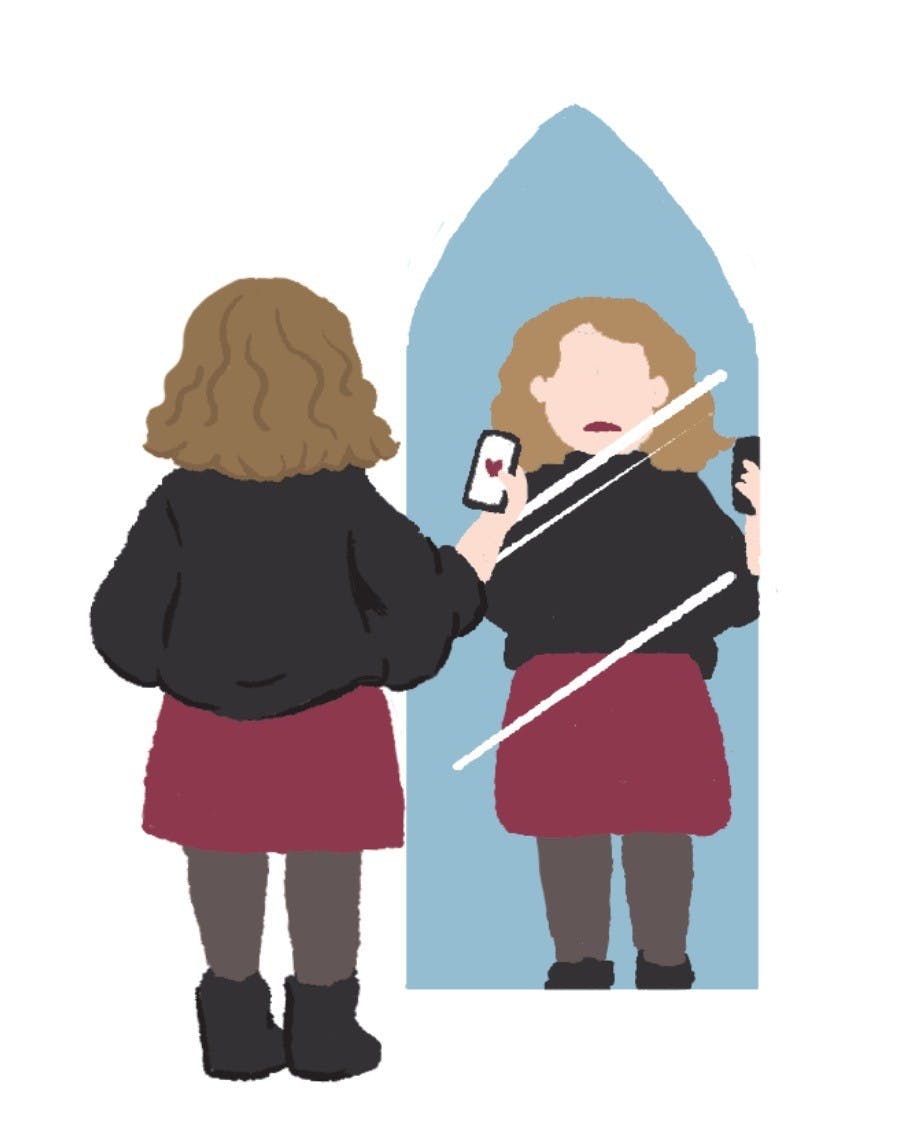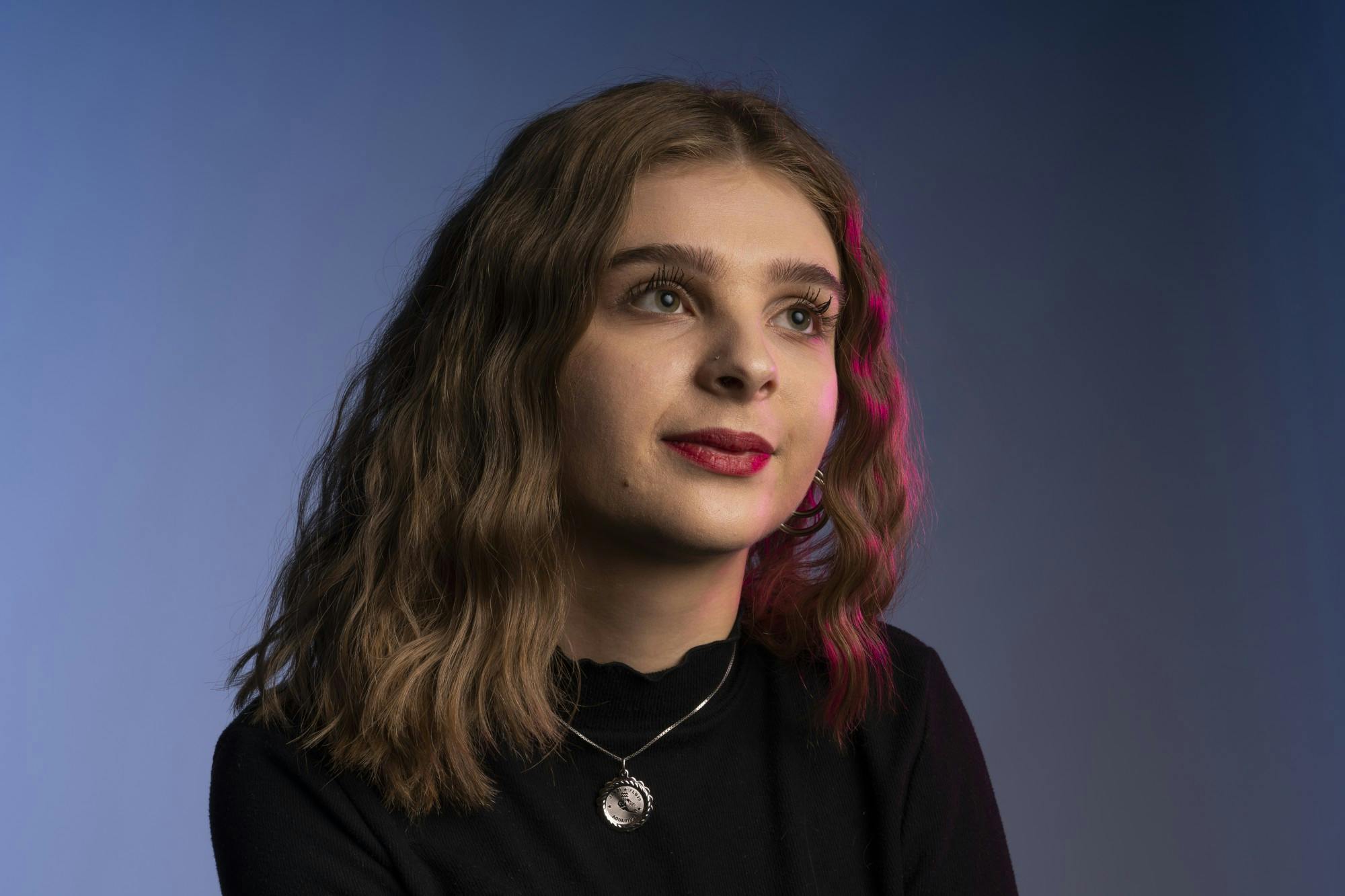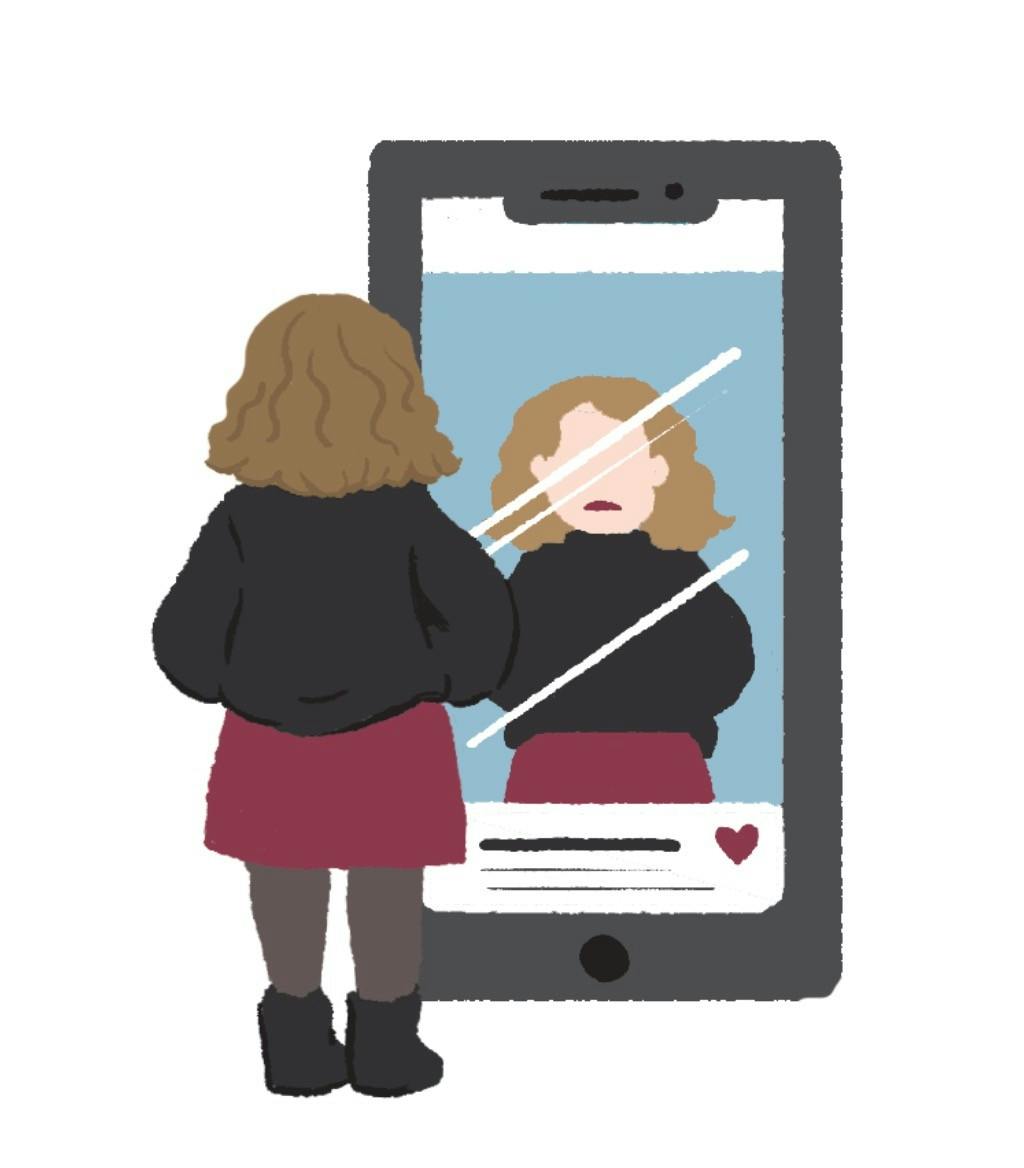It’s been years since I’ve battled an eating disorder, but I still struggle with body image issues on a day-to-day basis.


Photo by Wesley Herold.
It’s been years since I’ve battled an eating disorder, but I still struggle with body image issues on a day-to-day basis.

I still seem to fall into an endless spiral of negativity when it comes to my appearance. Luckily, I am now able to identify these negative thoughts and not engage in the bad habits that used to take over my life. Anxiety and depression are still present, but they’re manageable.
Unfortunately, I wasn’t surprised to discover that just about all of my friends — primarily my female-identifying friends — have also experienced body image issues. Like me, they’ve felt like they weren’t pretty enough or skinny enough or fashionable enough. And I hate that they’ve also had to feel like they aren’t enough.
It’s almost impossible to escape feeling this way when unrealistic beauty standards are ever-present all over social media. And it’s difficult not to compare yourself to others — including celebrities or your own peers.
Snapchat filters that make you look unrecognizable, Instagram influencers who promote products that supposedly make you healthier, Photoshop apps that make you look “perfect” — it’s tiring. It’s not helping our self-image or our mental health.
I’ve come to believe that feeling 100% comfortable in my own skin is impossible.
Sometimes, I wish my body looked different. Other times, I wish my face looked different. It’s always something. These desires to look like someone other than myself usually come from what I see on social media.
Seeing people who don’t share the same “imperfections” as you hurts and can make you feel alone. But we aren’t alone. What we see on social media is often filtered. Brands, public figures, our friends and acquaintances — they get to choose what others see on their accounts.
While going through my eating disorder in high school — at the same time social media platforms like Instagram were becoming more and more popular — I stumbled upon a campaign that made me feel less alone.
The Aerie Real campaign doesn’t photoshop or “touch up” their models. And their models don’t all look the same — they have different body types, different races, different ethnicities and different ages. They have stretch marks and scars. They have acne and freckles. They exhibit everything we’ve been told as women isn’t ideal or beautiful, yet are.
Campaigns like this one are much needed. But, again, they’re not what we’re usually exposed to. And we still have a long way to go in terms of fostering a culture that encourages people to love themselves for who they are.

To everyone who’s struggled with self-love and body image, you’re not alone. There are too many of us to count, which says a lot about how problematic the beauty standards all over social media are.
Like I said before, I’ve come to believe that feeling entirely comfortable in my own skin is impossible. But I’ve become much more appreciative of who I am and how strong I’ve become after going through the struggles I’ve had to go through.
My mental health is important to me. It took me a while to make it a priority, but I finally have. My confidence in myself might never be perfect. But is anything ever perfect?
Support student media! Please consider donating to The State News and help fund the future of journalism.